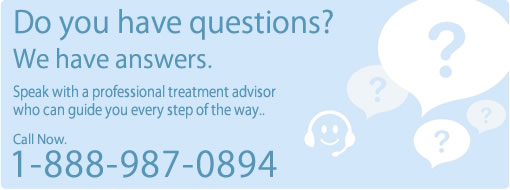Navigation
Treatment Articles
- Drug Rehabs
- Residential Treatment
- Short-Term Drug Rehabs
- Long-Term Drug Treatment
- Inpatient Treatment
- Outpatient Drug Rehab
- What Is Detox?
- 12 Step Vs. Non 12 Step
- Types of Drug Rehabilitation
- How Much Time Do You Spend In A Drug Rehab Facility?
Drug Articles

Help Me Find a Drug Rehab Center
Unfortunately, it's true that millions of people choose to operate a vehicle while intoxicated by alcohol or drugs. Doing so not only puts one's life in danger and puts passengers among others at risk at the same time, but being caught driving under the influence (DUI) or driving while intoxicated (DWI) will more often than not lead to serious penalties including driver's license suspension or cancellation, monetary penalties and in many cases incarceration. In many cases someone who has been found guilty of DUI or DWI ultimately struggles with an underlying substance abuse challenge. A legal court system knows this, and it is therefore inclined to provide DUI and DWI Offenders alcohol and drug treatment as an alternative to other serious consequences for their crime. Agreeing or obliging to take part in alcohol and drug rehabilitation as a DUI/DWI Offender might not exactly completely eliminate other effects from the crime, but tends to decrease the severity of such consequences to some great extent. Particularly if the person willingly participates drug and alcohol rehabilitation and is a first-time offender. Research has shown that lots of those who do receive alcohol and drug rehabilitation for a DUI/DWI offense avoid the court system for similar charges later on.
Odonata Psychotherapy and is a Drug Rehab Program that is located at:
258 Main Street
Buzzards Bay, MA. 2532
If you would like to contact Odonata Psychotherapy and, you can reach them at 774-247-4939.
Odonata Psychotherapy and offers the following treatment services: Drug and Alcohol Rehab Services, Outpatient Rehabs, Adolescent / Teen Rehab Centers, Dual Diagnosis, HIV / Aids Treatment Services, LGBT Rehabs, Senior Rehabs, Rehabs for Expectant Mothers, Women - Treatment Services, Men - Substance Abuse Treatment, Dui/Dwi Clients, Criminal Justice Client Rehabs, Other Languages
Payment forms accepted: Self Pay, Medicaid Accepted, Medicare Accepted, State Insurance, Private Health Insurance, Rehabs that Accept Tricare
Fairwinds Nantuckets Csl Center SOA is a Drug Addiction Treatment Facility that is located at:
20 Vesper Lane
Nantucket, MA. 2554
If you would like to contact Fairwinds Nantuckets Csl Center SOA, you can reach them at 508-228-2689.
Fairwinds Nantuckets Csl Center SOA offers the following treatment services: Drug and Alcohol Rehab Services, Outpatient Rehabs, Dual Diagnosis, Women - Treatment Services, Men - Substance Abuse Treatment, Dui/Dwi Clients, Spanish Treatment Services, Other Languages
Payment forms accepted: Self Pay, Medicaid Accepted, State Insurance, Private Health Insurance, Sliding Fee Scale Accepted